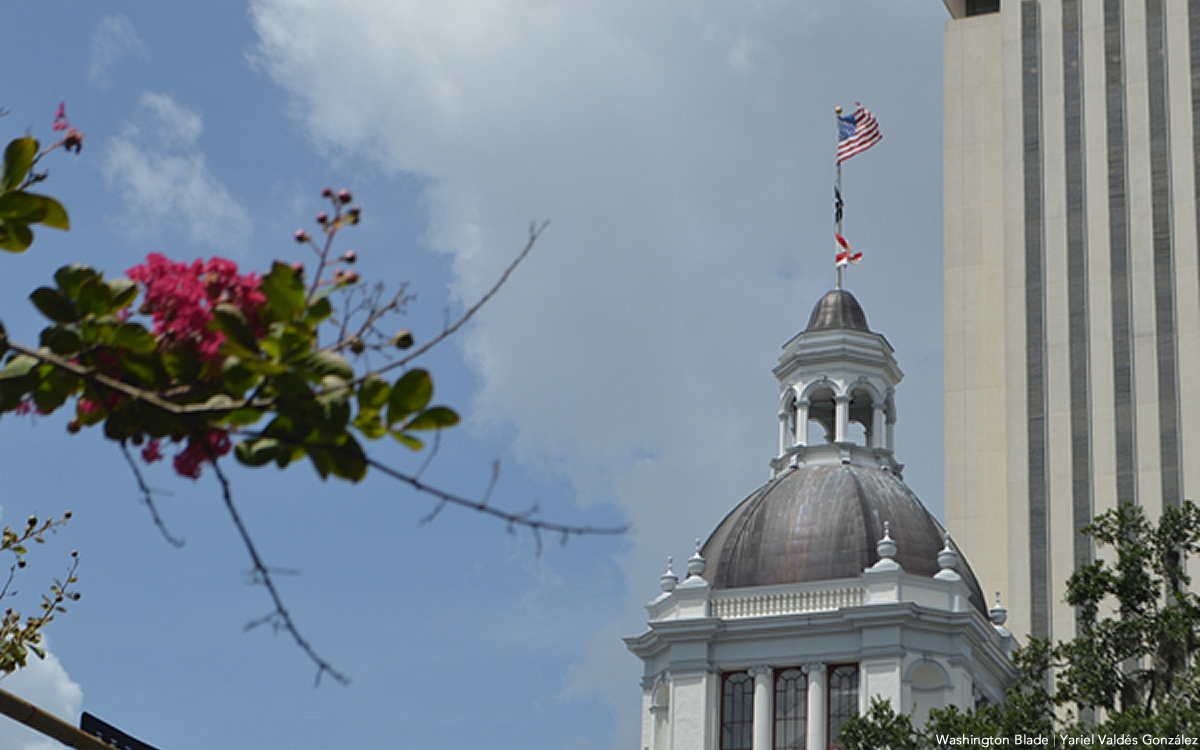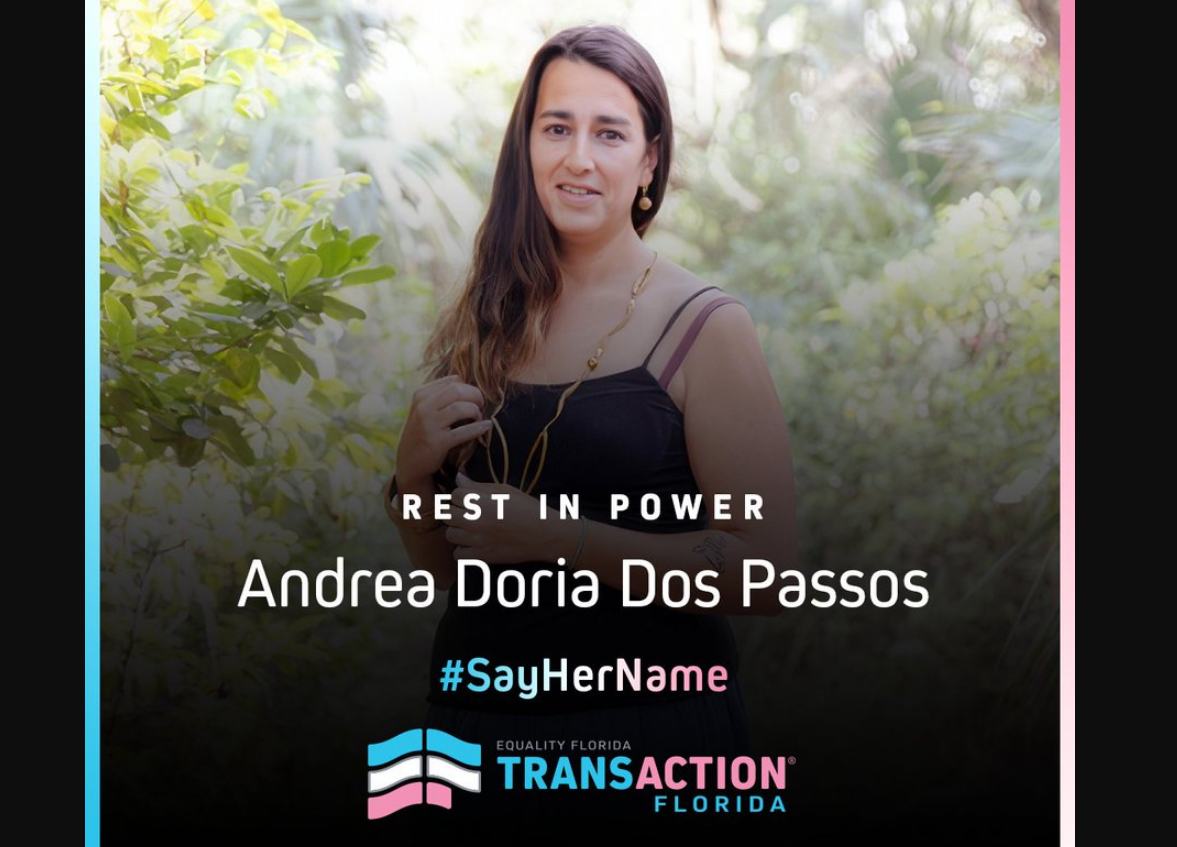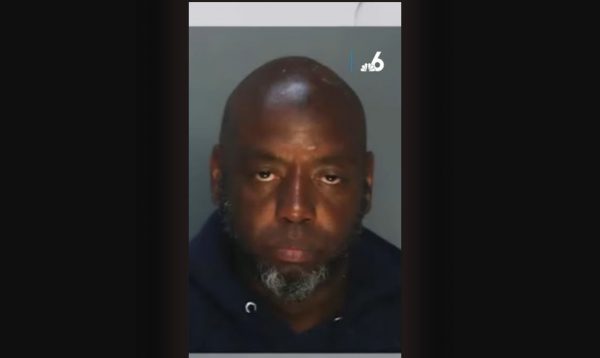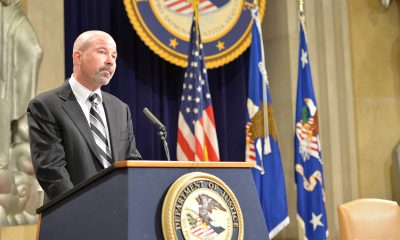Florida
First lawsuit filed against ‘Don’t Say Gay’ law in Florida
Complaint filed days after Gov. DeSantis signed measure

Mere days after Florida Gov. Ron DeSantis signed into law the “Don’t Say Gay” bill, the first lawsuit against the measure has emerged, asserting the statute “would deny to an entire generation that LGBTQ people exist and have equal dignity.”
Among the lawyers who signed the complaint — filed Thursday before the U.S. District Court of the Northern District of Florida — was Roberta Kaplan, who rose to fame for successfully arguing against the anti-gay Defense of Marriage Act before the U.S. Supreme Court in 2013, as partner at the New York-based law firm Kaplan Hecker & Fink LLP.
“Over time and continuing today, our nation has strived to make good on its promise that everyone is entitled to be treated with equal dignity under the law,” Kaplan said in a statement. “That is true when it comes to LGBTQ Americans, who now have the constitutional right to identify openly as LGBTQ, to marry, and to form families with children.”
Other lawyers who signed the complaint against the “Don’t Say Gay” bill, known as HB 1557, are Christopher Stoll, senior staff attorney with the National Center for Lesbian Rights, and Elizabeth Schwartz, a Miami-based attorney.
“This effort to control young minds through state censorship —and to demean LGBTQ lives by denying their reality — is a grave abuse of power,” the lawsuit says.
Under the “Don’t Say Gay” bill, schools for children in kindergarten through grade 3 may not engage in “instruction” about sexual orientation and gender identity, or generally throughout the education system “in a manner that is not age-appropriate or developmentally appropriate for students.” Although the new law allows for internal review and resolution if a parent brings a complaint against the school for violating the measure, the “Don’t Say Gay” bill also empowers a parent of a student who feels the law was violated to “bring an action against a school district” in court to seek damages.
A lawsuit was expected soon after DeSantis signed the “Don’t Say Gay” bill into law amid discussion about the various legal vulnerabilities of the measure. The complaint, declaring the new law “piles one violation on top of another,” makes its primary case based on free speech and equal protection principles, by saying the measure seeks “to censor discussions of sexual orientation or gender identity that recognize and respect LGBTQ people and their families.” Other violations cited in the complaint are based on due process protections as well as discrimination against LGBTQ people based on sex stereotypes, which the Supreme Court has ruled is unlawful in the case of Bostock v. Clayton County.
In a clear nod to the precedent set by the 1996 decision in Romer v. Evans, which determined laws against animus, including those against gay people, are unconstitutional, the complaint says the “Don’t Say Gay” law is clearly the product of animus toward Florida’s LGBTQ community.
“The bill’s sponsor in the Senate has stated that the law is meant to prohibit discussion of sexual orientations and gender identities that do not comport with Florida’s supposed ‘core belief systems and values,” the lawsuit says. “He has also stated that the bill is intended to prevent students “coming out in school” to their peers from being treated as ‘celebrities.’ The premise of these statements is fear that LGBTQ students might live their true identities in school and be met with acceptance rather than state-sanctioned hostility targeting their protected characteristics.”
Plaintiffs in the lawsuit are Equality Florida, a state LGBTQ organization, and Family Equality, a nationwide group that focus on LGBTQ parents and families. Other plaintiff are students, such as one gay student identified as “M.A” who set up a gay-straight alliance in his school, including Dan and Brent VanTice, a same-sex couple who are parents of two first-grade boys who go to public school in the area; and Hatcher Powderly, a teacher who seeks to inform her lessons with LGBTQ identity and history.
“Already, our children have told us that they are afraid that they will not be able to talk about their family at school,” Dan and Brent VanTice said in a joint statement. “We are heartbroken that our children are already feeling isolated and stigmatized by this law.”
The lawsuit speculates numerous ways schools could be subjected to lawsuits from a parent who objects to LGBTQ identities coming up in some way in classroom settings, which could be any number of ways other than planned curriculum.
“Can students ask— and teachers answer—questions about historical events involving LGBTQ people?” the complaint says. “Would H.B. 1557 ban a teacher from discussing gay-rights’ decisions, like Bostock v. Clayton County, 140 S. Ct. 1731 (2020), where the Court held that LGBTQ persons cannot be discriminated against in employment? If a student writes a paper in which they discuss their gender identity or sexual orientation — and relate it to their argument — could a teacher not grade it? If the teacher did grade it, would they be prohibited from commenting on any aspect of the paper or discussing it with the student, thus leaving LGBTQ students at a systematic educational disadvantage?”
Proponents of the “Don’t Say Gay” bill have defended the measure by erroneously saying it simply prohibits sex education for K-3 children or would only prohibit school curriculum on sexual orientation or gender identity, even though there’s no limiting principle in the measure restricting its reach. In fact, Republican lawmakers during the legislative process for the measure rejected an amendment proposed by Democrats that would enumerate the prohibition in the bill was limited to discussion on “sexual activity.”
Imani Rupert-Gordon, executive director of the National Center for Lesbian Rights, said in a statement the “Don’t Say Gay” measure is “discriminatory law” and “threatens the decades of progress we’ve made in creating safer schools for everyone.”
“While this law will endanger all students, it will be particularly damaging to LGBTQ students and LGBTQ parents,” Rupert-Gordon said. “We are filing this challenge only days after the bill was signed into law because the harms it is causing are already so incredibly clear. Every young person deserves to be safe at school and we will fight unconscionable laws like this until that is true for every student.”
The Washington Blade has placed a request with the office of Florida Attorney General seeking comment on the complaint.
Florida
Federal judge blocks Fla. trans health care ban and restrictions
Republican Gov. Ron DeSantis plans to appeal ruling

BY JACKIE LLANOS | Florida’s ban on puberty blockers and hormone replacement therapy for transgender minors and restrictions for adults are both unconstitutional, a federal judge ruled Tuesday.
U.S. District Judge Robert Hinkle, who presided over the case in Tallahassee, sided with the plaintiffs in the class action — parents of trans minors and trans adults — who argued the measure violated the U.S. Constitution because it solely targeted trans people.
“The federal courts have a role to play in upholding the constitution and laws. The state of Florida can regulate as needed but cannot flatly deny transgender individuals safe and effective medical treatment — treatment with medications routinely provided to others with the state’s full approval so long as the purpose is not to support the patient’s transgender identity,” Hinkle wrote.
Those restrictions came into place following Gov. Ron DeSantis’ approval of Senate Bill 254 in May 2023 and promulgation of rules from the Florida Board of Medicine and Florida Board of Osteopathic Medicine enacting that law. Those boards and Florida Surgeon General Joseph Ladapo were named as defendants.
The measures banned minors’ use of puberty blockers and hormone replacement therapy, common treatments for gender dysphoria. Additionally, the law said only physicians, psychologists, and psychiatrists could treat adults seeking gender-affirming care, with the added requirements of frequent in-person visits, tests, and authorization through a consent form that contained false information about the harms of hormone replacement therapy.
However, the law didn’t impose the same restrictions on cisgender women needing to take testosterone or cisgender men needing to take estrogen.
Appeal incoming
The state plans to appeal the ruling, said Jeremy Redfern, press secretary to DeSantis. An appeal would go to the 11th U.S. Court of Appeals.
“Through their elected representatives, the people of Florida acted to protect children in this state, and the court was wrong to override their wishes,” Redfern wrote in a statement to Florida Phoenix.
“We disagree with the court’s erroneous rulings on the law, on the facts, and on the science. As we’ve seen here in Florida, the United Kingdom, and across Europe, there is no quality evidence to support the chemical and physical mutilation of children. These procedures do permanent, life-altering damage to children, and history will look back on this fad in horror.”
Redfern wrote that the state would continue to “fight to ensure children are not chemically or physically mutilated in the name of radical, new age ‘gender ideology.’”
In his 105-page ruling, Hinkle noted that “there were no complaints from patients, no adverse results in Florida, just a political issue.”
However, the ruling does not lift the state ban on gender-affirming surgery for minors and restrictions on surgery for adults. That’s because the plaintiffs didn’t challenge the statutes relating to surgery for minors, and the adult plaintiff had not sought surgery and so lacked standing to challenge those restrictions.
Relief for plaintiffs
Plaintiff Gloria Goe (they used pseudonyms to protect the privacy of their children) is the mother of an 8-year-old (at the opening of the case) trans boy. During the opening day of the trial on Dec. 13, she testified that she feared her son would be swallowed by depression if forced to go through puberty without medical treatment.
“This ruling lifts a huge weight and worry from me and my family, knowing I can keep getting Gavin the care he needs, and he can keep being the big-hearted, smiling kid he is now. I’m so grateful the court saw how this law prevented parents like me from taking care of our children,” Goe wrote in a press release.
Attorneys with GLBTQ Legal Advocates and Defenders, Human Rights Campaign Foundation, National Center for Lesbian Rights, Southern Legal Counsel, and the Lowenstein Sandler law firm represented the plaintiffs.
Hinkle compared the discrimination trans people face nowadays to racism and misogyny.
“Some transgender opponents invoke religion to support their position, just as some once invoked religion to support their racism or misogyny,” Hinkle wrote. “Transgender opponents are of course free to hold their beliefs. But they are not free to discriminate against transgender individuals just for being transgender. In time, discrimination against transgender individuals will diminish, just as racism and misogyny have diminished.”
Editor’s note:
In a statement made to the Los Angeles Blade after Tuesday’s rule, Shannon Minter, the legal director for the National Center for Lesbian Rights said:
“This decision is important because is the first federal court to rule on a law restricting healthcare for transgender adults and because it finds that Florida’s laws are plainly based on anti-transgender bias, not science. This victory shows that we can and must keep fighting these dangerous laws, notwithstanding the deeply flawed rulings of some conservative appellate courts.
Judge Hinkle ruled in favor of the transgender plaintiffs in this case even after the negative 11th Circuit ruling that reversed our initially successful challenge to a similar ban in Alabama. He was able to do so because the evidence showing that these laws have no medical justification and are rooted in false stereotypes and bias was so strong. This is a huge victory, and one that shows that we can win these battles even in red states.”
******************************************************************************************

Jackie Llanos is a recent graduate of the University of Richmond. She has interned at Nashville Public Radio, Virginia Public Media, and Virginia Mercury.
******************************************************************************************
The preceding article was previously published by The Florida Phoenix and is republished with permission.
The Phoenix is a nonprofit news site that’s free of advertising and free to readers. We cover state government and politics with a staff of five journalists located at the Florida Press Center in downtown Tallahassee.
We’re part of States Newsroom, the nation’s largest state-focused nonprofit news organization.
Florida
Homeless transgender woman murdered in Miami Beach
Andrea Doria Dos Passos attacked while she slept

Gregory Fitzgerald Gibert, 53, who was out on probation, is charged with the second-degree murder of 37-year-old Andrea Doria Dos Passos, a transgender Latina woman who was found deceased in front of the Miami Ballet company facility by a security guard this past week.
According to a Miami Beach Police spokesperson the security guard thought Dos Passos was sleeping in the entranceway around 6:45 a.m. on April 23 and when he went to wake her he discovered the blood and her injuries and alerted 911.
She was deceased from massive trauma to her face and head. According to Miami Beach police when video surveillance footage was reviewed, it showed Dos Passos lying down in the entranceway apparently asleep. WFOR reported: In the early morning hours, a man arrived, looked around, and spotted her. Police said the man was dressed in a black shirt, red shorts, and red shoes.
At one point, he walked away, picked up a metal pipe from the ground, and then returned. After looking around, he sat on a bench near Dos Passos. After a while, he got up and repeatedly hit her in the head and face while she was sleeping, according to police.
“The male is then seen standing over her, striking her, and then manipulating her body. The male then walks away and places the pipe inside a nearby trash can (the pipe was found and recovered in the same trash can),” according to the arrest report.
Police noted that in addition to trauma on her face and head, two wooden sticks were lodged in her nostrils and there was a puncture wound in her chest.
Victor Van Gilst, Dos Passos’s stepfather confirmed she was trans and experiencing homelessness.
“She had no chance to defend herself whatsoever. I don’t know if this was a hate crime since she was transgender or if she had some sort of interaction with this person because he might have been homeless as well. The detective could not say if she was attacked because she was transgender,” said Van Gilst.
“She has been struggling with mental health issues for a long time, going back to when she was in her early 20s. We did everything we could to help her. My wife is devastated. For her, this is like a nightmare that turned into reality. Andrea moved around a lot and even lived in California for a while. She was sadly homeless. I feel the system let her down. She was a good person,” he added.

The Miami Police Department arrested Gibert, collected his clothing, noting the red shorts were the same type in the video and had blood on them. Blood was also found on his shoes, according to police. He was taken into custody and charged.
“The suspect has an extensive criminal record and reportedly was recently released from custody on probation for prior criminal charges. Police apprehended the suspect in the city of Miami and the investigation is currently ongoing. This case is further evidence that individuals need to be held accountable for prior violent crimes for the protection of the public. We offer our sincere condolences to the family and friends of the victim,” Miami Beach Mayor Steve Meiner said in a statement.
Joe Saunders, senior political director with LGBTQ rights group Equality Florida, told the Miami Herald that “whenever a transgender person is murdered, especially when it is with such brutality, the question should be asked about whether or not this was a hate-motivated crime.”
Florida
Professor at Baptist university in Virginia found dead in Florida gay sauna
Orlando police say cause of death undetermined

A beloved professor of psychology at Averett University, a private Baptist university in Danville, Va., was found dead on March 16 of unknown causes at the Club Orlando, a popular sauna and bathhouse for gay men located in Orlando, Fla.
University officials said David Hanbury, 37, an Associate Professor of Psychology who taught at the university since 2015, was in Orlando attending a conference of the Southern Psychological Association and had initially been reported missing by family members before he was found deceased.
Orlando police told USA Today the cause of death had not been determined but the death “does not appear suspicious at this time.” USA Today reports that police said their investigation into the death was “active and ongoing.”
A spokesperson for the Orange County, Fla., Medical Examiner told the Washington Blade it would take about 90 days for the completion of blood work and toxicology tests to confirm the cause of death in a case like this, where there were no obvious signs of injury or illness.
Cassie W. Jones, Associate Vice President of University Marketing and Communications at Averett University, declined to disclose whether Hanbury self-identified as gay in response to an inquiry from the Blade
“As an employer, we cannot comment on our employees’ personal matters,” Jones said. But when asked if the university would have continued to treat Hanbury with respect and support his tenure at the university if he had come out as gay, she said “absolutely” in an email response to Blade questions.
“Dr. David Hanbury was a dear professor, colleague and friend whose influence was far reaching,” Jones said in a March 21 message to the Blade, “We send our affection, condolences, and prayers of support to Dr. Hanbury’s family, friends and all others upon whom he had a lasting impact.”
The Averett University website shows that it has a policy of nondiscrimination that includes the categories of sexual orientation and gender identity among other categories such as race, religion, and ethnicity. The website also shows that the university has an LGBTQ student group called the Gender and Sexuality Alliance or GSA group.
Jones said the admiration and longstanding support of Hanbury from his fellow professors and students was reflected in a March 18 memorial gathering for him on campus.
“Nearly 250 students, faculty, staff, and community members joined as one Averett family, united in grief and sorrow, as we gave thanks for the remarkable life and influence of Dr. Hanbury on our lives and on the University,” Jones said.
“Averett University is committed to inclusion and belonging for all who learn, work and visit our campus,” Jone told the Blade. “Openness and inclusivity are embedded in our institution’s core values, and we know our diversity makes us stronger.”
The Baptist Standard, an independent newspaper that reports on the Baptist Church, reported in a May 9, 2011, story that the Baptist General Association of Virginia severed ties with Averett University in 2005 over a disagreement with the university’s position on homosexuality. Other news reports at the time said the Baptist organization objected to the university’s support for a gay student group.
Jones, in her message to the Blade, said Averett University currently “is a part of the Baptist General Association of Virginia family of educational partners.” She added, “We are aligned in our commitment to meet students wherever they are in their faith journey, and welcome those of all faiths or no faith.”
-

 U.S. Supreme Court3 days ago
U.S. Supreme Court3 days agoSupreme Court upholds ACA rule that makes PrEP, other preventative care free
-

 U.S. Supreme Court3 days ago
U.S. Supreme Court3 days agoSupreme Court rules parents must have option to opt children out of LGBTQ-specific lessons
-

 India5 days ago
India5 days agoIndian court rules a transgender woman is a woman
-

 National4 days ago
National4 days agoEvan Wolfson on the 10-year legacy of marriage equality














